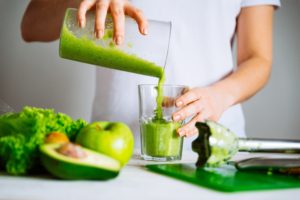
Your body is resilient, and it has its own detox machine built right in. This natural cleanser is called your liver, and if you’ve got a healthy liver, you can be rest assured there are no toxins floating around in your bloodstream putting your health at risk.
The liver acts as a filtration system for your body. Everything you consume makes its way through your liver, where it separates what you need from what you don’t. All the good stuff is sent out to circulate, and the bad is removed. The reality is that if “toxins” entered your bloodstream, there’s no juice or diet on earth that will help.
But just because you have a liver doesn’t mean you’re not at risk for illness. The liver needs to be treated right to do its job optimally, and even though it’s a resilient organ, it’s a wise idea to take care of it. You can make things easier on this vital organ by:
- Maintaining a healthy weight: Being overweight can increase your risk of non-alcoholic fatty liver disease (NAFLD), which can severely limit liver function. Losing weight can help reduce liver fat to improve function.
- Eating a healthy diet: Processed foods can also make things hard on your liver. Refined carbohydrates and greasy, deep fried items can promote a fatty liver and high cholesterol. Instead, opt for high-fiber foods like whole grains, legumes, fruits, vegetables, lean meats, and dairy.
- Limit alcohol: Much like processed food, alcohol can be hard on your liver. Limiting alcohol to one to two drinks at a time (per day) and no more than three on very special occasions can help reduce the risk for liver disease.
- Follow instructions for medications: Taking medications incorrectly, mixing certain products, or taking too much of something can also harm your liver. Follow the directions on all medications and supplements to a tee and speak to your doctor if you’re taking a combination of things, whether they are prescription medications or not.
The liver is your body’s engine, and these are just some of the things you can do to keep it running at its best.